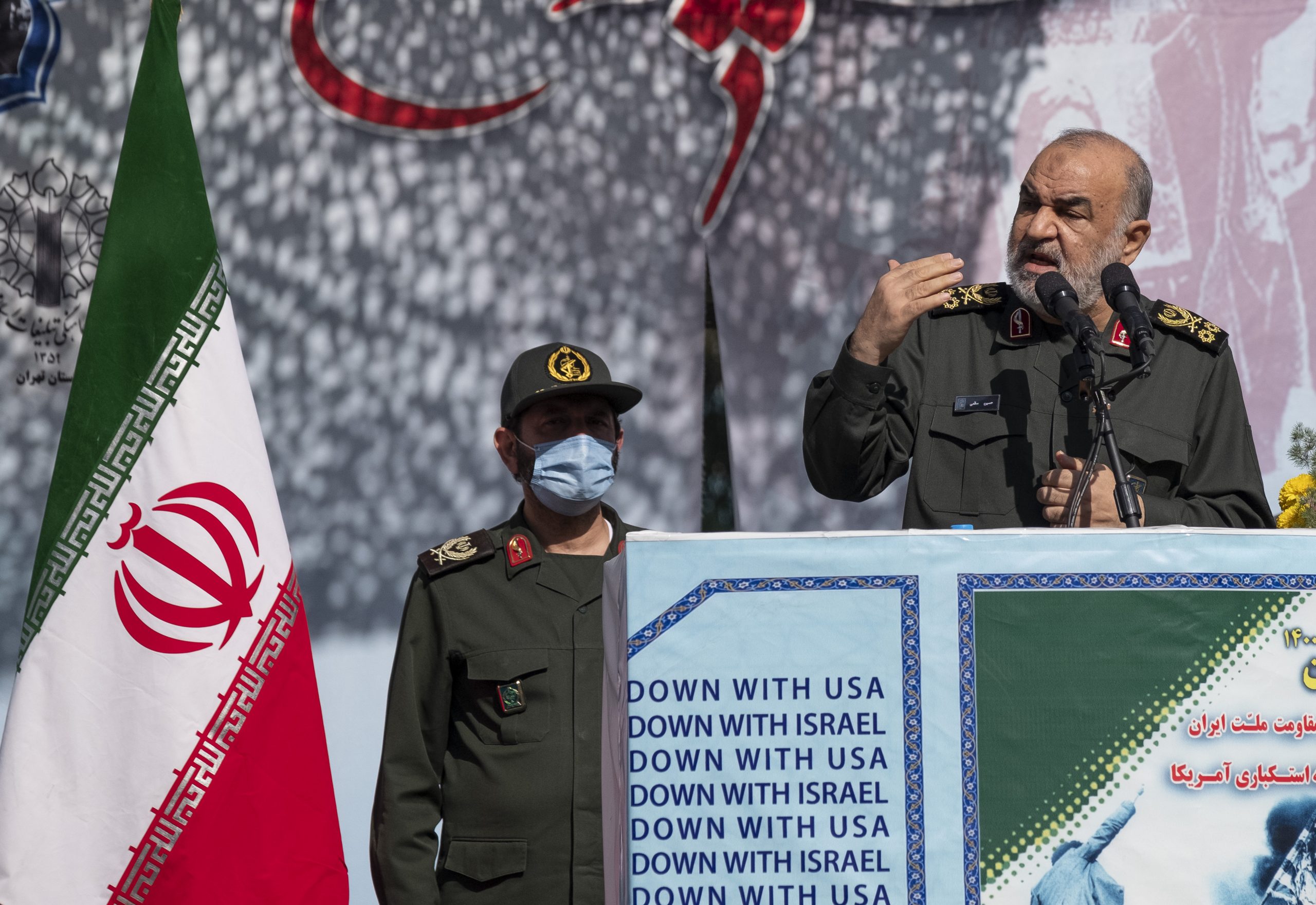In mid-October, Azerbaijani leader Ilham Aliyev laid into Iranian officials in a short video. He wore a military uniform and said, “Don’t make us angry. Calm down. If you say something about us in the media again, we will walk over your heads. No one in the world is on your side.”
No one in the world is on your side.
It does seem like that for Iranian President Ebrahim Raisi, his administration, and his country. Iran’s foreign policy appears to be losing an uphill battle with growing dissatisfaction with Tehran’s—the capital of Iran – nuclear program methods and delays in negotiations.
This, along with the tension rising in Iran’s neighboring countries, is undermining the country’s declaration of increasing influence.
Since Raisi took office in August, he and his administration have stressed close relations with their neighbors as their highest priority. His choice of Hossein Amirabdollahian as foreign minister, whose experience and expertise are limited to Middle East affairs, indicates that the new administration is trying to stick to the plan of mending and expanding foreign relationships.
The appointment of Amirabdollahian as foreign minister wasn’t seen as a step in the right direction by other Arab states. Amirabdollahian is known for personal ties to the Islamic Revolutionary Guards Corps’ Quds Force, which has long been known to create and cultivate militias and other groups. While his appointment was supposed to encourage Iran’s regional focus, it had the opposite effect. Arab states were enraged about the Islamic Republic’s interference.
And other recent events in the Middle East have not been in Iran’s favor.
Hezbollah – a Lebanese Shia Islamist political party and militant group and Iran’s closest ally – had been blamed for many of Lebanon’s problems, including the Beirut port blast last summer. The Beirut port blast only added to the emotions of the continued two-year-long protests for ending Iran’s interference in Lebanon’s affairs.
The Taliban has returned to power in Afghanistan, who are a historic Iranian enemy.
In October, Iraq’s parliamentary elections were a setback for Iran-backed Shia groups. Iraq wants to become a stabilizing force between Iran and Saudi Arabia which would also decrease Tehran’s influence.
Border tensions rose between Iran and Azerbaijan, with both countries holding military drills near each other’s borders, incited a dangerous political war of words. Iran needs to play it safe when it comes to board difficulties because failure is on the horizon if it doesn’t settle barriers to trade and investment.
Even Russia and China, two of Iranian’s biggest allies, are unhappy with how long it’s taking for them to return to nuclear talks.
What could possibly be the solution for Iran to improve their sway in foreign policy? They need to fix their global issues before niching down and resolving their regional problems. Returning to compliance with the Joint Comprehensive Plan of Action with the United States seems to be the only way to keep the rest of the Arab states settled.


